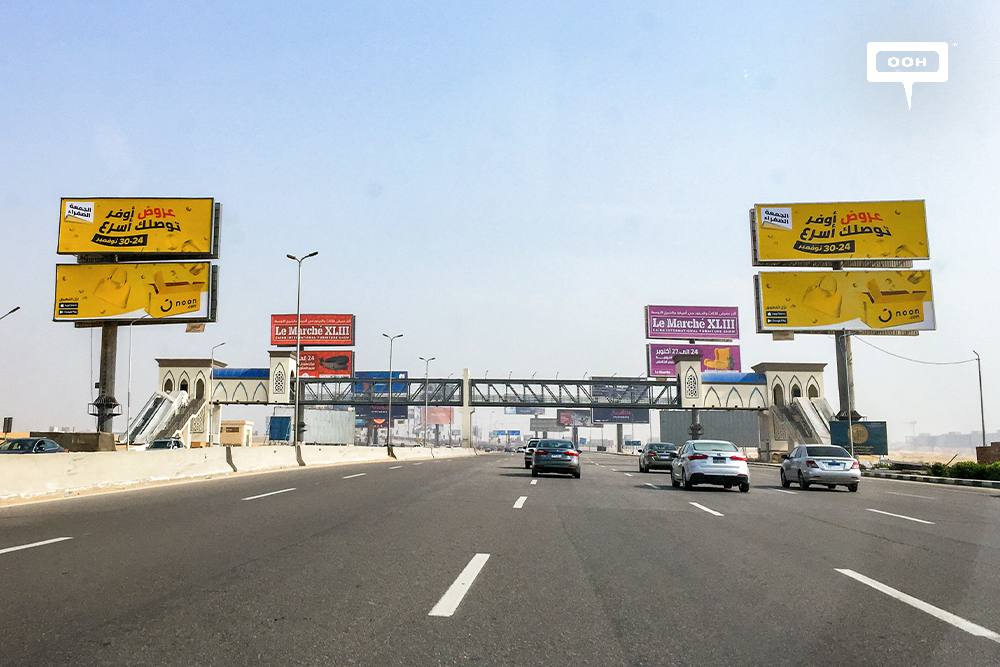“Black Friday in Egypt is a big scam,” says Sherif Othman, a 42-year-old novelist and owner of Concorde Decoration Company.
Every year, as the month of November approaches, billboards with Black Friday announcements adorn Salah Salem street and 6 October bridge, and YouTube advertisements of unmissable discounts play before every other video. Yet, as the marketing for Black Friday discounts increases, fewer people are tempted to take advantage of them.

Othman, who describes himself as a shopaholic, often shops online on platforms like Jumia and Amazon, since he does not have the luxury of time to visit multiple stores.
Black Friday is a shopping tradition that originated in the US, where shops offered massive discounts on the day after Thanksgiving. In recent years, the tradition began to appear and spread in other countries, including Egypt. However, in Egypt, many claim that these discounts are usually fake.
Sales or scams?
A few years ago, Othman recalls that he needed to buy a power socket, months before Black Friday, and it cost EGP 245 (USD 10) on Jumia. On Black Friday, while casually scrolling on the mobile application, he saw the same socket for EGP 340 (USD 14) and EGP 245 (USD 10) after a discount was applied.
“Whenever I have a friend traveling in November, I take advantage of Black Friday deals abroad because there are actual discounts with competitive deals between the different online platforms like Noon and Amazon in the UAE or the UK,” Othman tells Egyptian Streets.
Similarly, Mahmoud Saleh, a 30-year-old PhD candidate at Saint Petersburg State University in Russia, noticed extreme price disparity between products in Egypt. In a similar incident to Othman’s, Saleh wanted to buy a kitchen appliance for his mother. The product cost EGP 3,700, so he decided to wait for Black Friday to buy it when discounted. To his surprise, the product was marketed as discounted from EGP 4,500 (USD 183) to EGP 3,700 (USD 151).
“This was before the devaluation of the Egyptian pound and the instability in prices that is happening now,” Saleh tells Egyptian Streets. “Back then, prices were stable and it was easy to track fake discounts like these.”
Saleh believes that shopping for Black Friday discounts in Egypt is bound to be a failed experience.
“In Egypt, Black Friday is just impulsive marketing,” Saleh continues. “They try to play on the feelings of customers to convince them that they have huge discounts, when in reality, there are no real discounts.”
Regulations and policies
According to Othman, nearly four years ago, stores were obligated to get a sale permit with a specific discount rate, from the Egyptian Ministry of Supply and Internal Trade, before applying discounts in stores. During the sale period, an inspector from the ministry visits the store, checks the sale, and reviews old bills to ensure that the current discounts are not fake. If the store is found guilty of this, the owners can be subject to fines and imprisonment.
Egyptian Streets reached out to spokespersons from the Ministry of Supply and Internal Trade for a statement on the procedures being taken to combat cheating and fake discounts in stores and online, but received no response. We were later directed to representatives from the Consumer Protection Agency (CPA), but also received no response after several trials.

Tracking and comparing prices
In recent years, many Egyptians began to use a website called Kanbkam (How much did it cost?) to track prices and check whether advertised discounts are real or fake.
Launched in 2016, Kanbkam is a price analysis portal for products selling in online shopping and eCommerce portals in the Middle East and North Africa, such as Amazon, Noon, Jumia, Carrefour, among others. The portal tracks product price changes, and stores them for shoppers to help them know if the product is currently selling at a good price compared to its history, or not.
Additionally, Saleh, like many Egyptians, voiced his frustration over the difference between product prices on Amazon Egypt, compared to Amazon US or UK. Using camelcamelcamel, a website with a similar function to Kanbkam, Saleh tracks Amazon price products and decides whether to buy or forgo.
While hopelessly shopping for actual good sales in the month of November, following advertisements of discounts everywhere, Hagar Elgezeri, a 20-year-old medical student and content creator specialized in skin care, noticed that there is nothing evidently special about Black Friday prices in Egypt.
“I thought that the idea of increasing prices before sales was some sort of conspiracy theory, until I saw it yesterday on a website,” Elgezeri explains to Egyptian Streets. “Increasing the price prior to sales and then calling it Black Friday is a scam.”
With a following of more than 50,000 on Instagram, Elgezeri advises her followers that it is important to know the original prices of items before discounts to determine whether the sales are worth it.
Whether in November or throughout the rest of the year, many Egyptians complain of lack of monitoring and regulation on pricing of items, both in stores and online. With no clear regulation, many shoppers now resort to purchasing items from abroad through extended family or relatives, instead of shopping in Egypt, even if this means items will be delivered to them at a later date.
While shoppers across the globe anticipate November deals and Black Friday discounts annually, fewer and fewer Egyptian shoppers are sharing the same sentiment, as their faith in attractive deals during that season diminish.
Subscribe to the Egyptian Streets’ weekly newsletter! Catch up on the latest news, arts & culture headlines, exclusive features and more stories that matter, delivered straight to your inbox by clicking here.







Comments (4)
[…] Izaphulelo zangempela noma amadili mbumbulu? Ukubheka I-Black Friday e-Egypt […]
[…] Izaphulelo zangempela noma amadili mbumbulu? Ukubheka I-Black Friday e-Egypt Yini AbaseGibhithe Abayeka Ukuyithenga Ngenxa Yentengo Eqile? […]